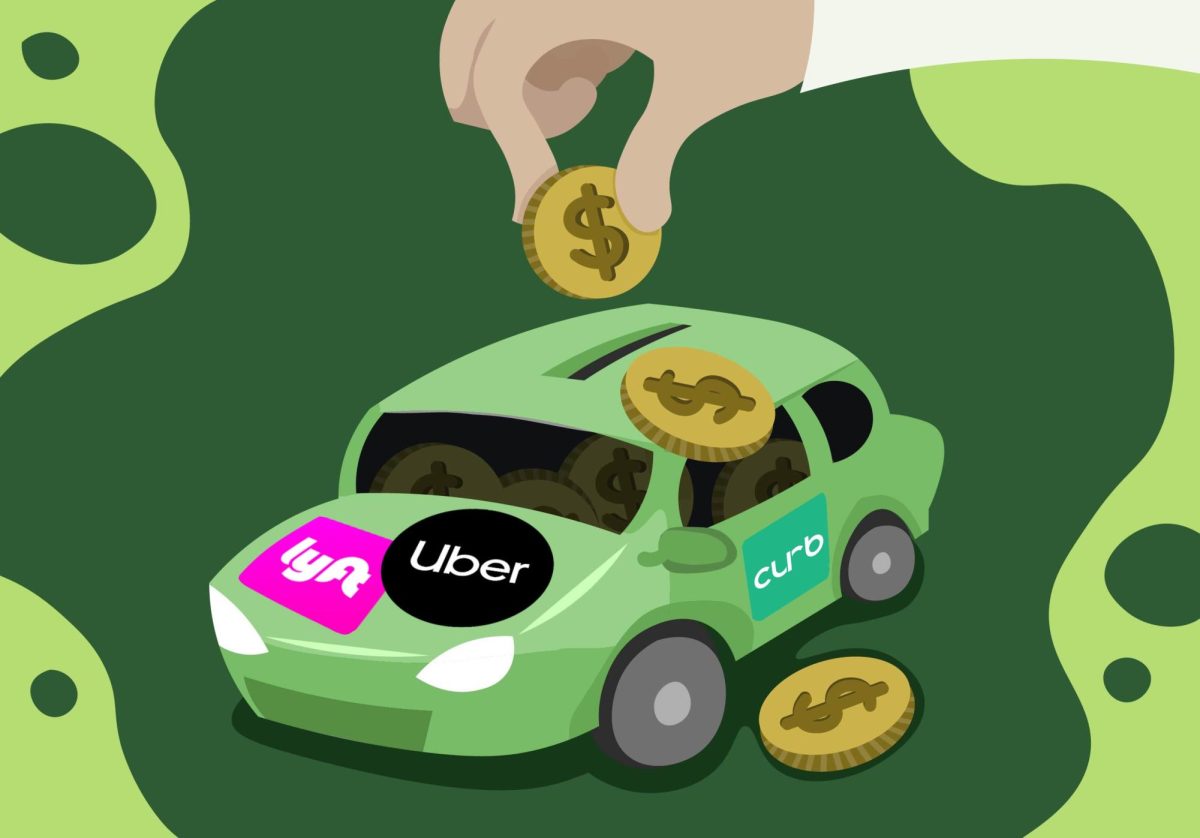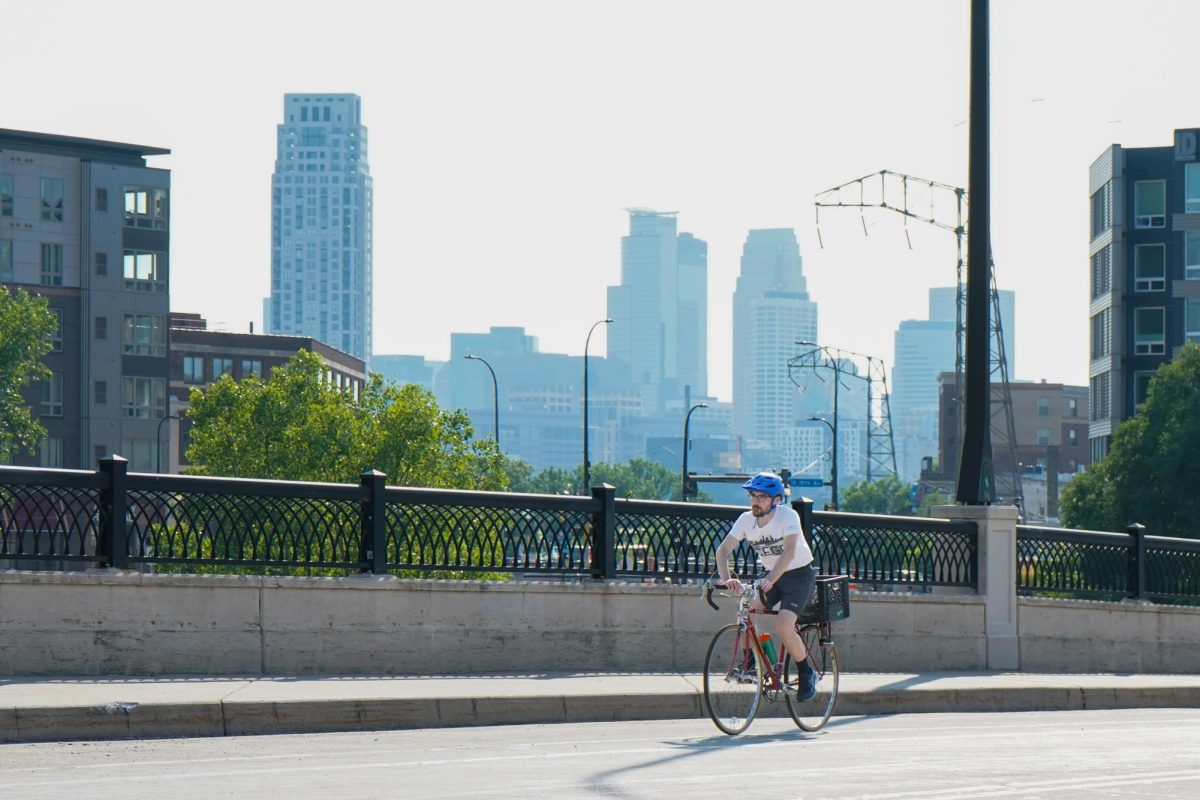After efforts to enact a minimum wage for Minneapolis rideshare drivers failed last year, Minneapolis City Council members continue to push for minimum- wage-equivalent pay for Uber and Lyft drivers.
Largely an immigrant and non-white community, Minneapolis’ rideshare drivers have worked to increase their wages since 2022, when a group of drivers approached Councilmember Jamal Osman (Ward 6) about their struggles with fair pay, according to Osman.
Councilmembers Osman, Robin Wonsley (Ward 2) and Jason Chavez (Ward 9) have spearheaded the movement to enact minimum wage legislation for rideshare drivers.
Eid Ali, the president and founder of the Minnesota Uber and Lyft Drivers Association (MULDA), said it was important to take this issue to the city council because rideshare drivers are a crucial part of the economy who need financial security.
“Every one of us has skin in the game, has some responsibility to contribute,” Ali said. “I want to make sure that our representatives have to pay attention and take this issue very, very seriously and come up [with] at least some sort of a standard of living for those drivers who are doing a marvelous job and work so hard to at least earn for their families.”
Rideshare drivers make less than half of what they did 10 years ago, according to Ali.
Osman said the issue is important to him because many members of Ward 6 are non-white immigrants who often face financial insecurity.
“The East African community or Latino American community and Mexican American community that are here already have so many barriers when it comes to being in a new country and having all those challenges and for them to feel like they’re being robbed, it’s something that I’m obligated to speak out [on],” Osman said.
A presentation given Tuesday by Andrew Hawkins from the City Auditor’s Office of Policy and Research at a city council meeting outlined the history, research methods and potential models for compensating rideshare drivers in the city.
Legislation at both the city and state levels was vetoed by Minneapolis Mayor Jacob Frey and Minnesota Governor Tim Walz, respectively. Governor Walz vetoed a bill guaranteeing per mile and per minute wage rates for rideshare drivers on May 25, 2023.
Mayor Frey vetoed a policy approved by the city council guaranteeing rideshare drivers $15 per hour with $1.40 per mile and $0.51 per minute rates in late August 2023. Supporters on the city council did not have enough votes to override Mayor Frey’s veto.
Osman, Wonsley and Chavez said in a joint statement Friday that failing to properly compensate rideshare drivers is unacceptable in a city with a $15 minimum wage law.
“This is an unacceptable reality that Minneapolis workers face because multi-billion dollar corporations don’t want to play by the same rules as our local small business owners do,” the councilmembers said in their joint statement.
Since Frey’s veto, Hawkins and the city’s Community Planning and Economic Development Department worked with city council to collect rideshare company data, surveys from rideshare drivers and similar legislation passed in Seattle and New York to formulate three potential rideshare driver compensation wage models.
The models account for three stages of a driver’s status while working —: logged into a rideshare app but not transporting or on the way to pick up a customer, on the way to pick up a customer and actively transporting a customer — roughly 50% of a driver’s time.
The compensation models, – models A, B and C,– each vary in the rate amount and the stage of driving accounted for. Both Model A and B have set rates per mile and per minute of a driver’s time. Model C does not account for a mileage rate.
Hawkins said in Tuesday’s meeting that a primary focus of the compensation models ensures that even after enacted, they are flexible to economic and legislative changes.
“We’ve seen this across the board at the state and local levels where they’ve adopted some kind of a model,” Hawkins said in Tuesday’s presentation. “That model’s been continuously monitored and adapted to make sure that it’s meeting the needs and its intended purpose.”
Ali said that while whatever legislation is passed may not fully resolve every issue facing rideshare drivers, he is confident progress will be made to help drivers.
“We know that we are not going and expecting to get everything 100%, but we are thinking that what we’re doing is a very good start,” Ali said. “Very strong representation was already laid out in front of those city council members and great city council members were paying attention to this issue.”
Osman, Wonsley and Chavez supported Model A in their press release.
“The mayor’s proposal, Model B, falls far short of the minimum wage because it fails to account for vehicle and fuel costs, which is out of alignment of national standards. The examples in the report reveal that drivers earn over 30% less per ride in Model B or Model C than in Model A,” the councilmembers said in their joint statement.
Among questions posed by council members at the Tuesday presentation, Councilmember Katie Cashman (Ward 7) asked how establishing a compensation rate for drivers would impact the cost of a rideshare trip for customers.
Hawkins said they do not have data on the impact on prices, but it “is definitely something that needs to be monitored.”
Osman said the concern of increased prices for Uber or Lyft rides is nonsense, distracting from the real issue of rideshare drivers’ financial well-being.
“It’s scare tactics,” Osman said. “We understand how huge a multi-million dollar company is, and when it comes to national and state, they have the lobbies on their side, but here locally, we can make it hard for them. We can stand for the drivers and we will stand for riders too.”
Osman, Wonsley and Chavez promised to pass protections for rideshare drivers and riders in their press release.
“Both drivers and riders in our city deserve protection and we look forward to delivering on both,” the press release said.
Ali said a successful wage compensation policy would be more than a bonus, it would provide long-term financial security for rideshare drivers.
“It’s going to make them support their families and take care of their financial responsibilities. It will give them a sense of ownership, that they know that they are part of the community and they are getting paid fairly,” Ali said. “They’re not asking more than that, they’re asking for fairness.”
























